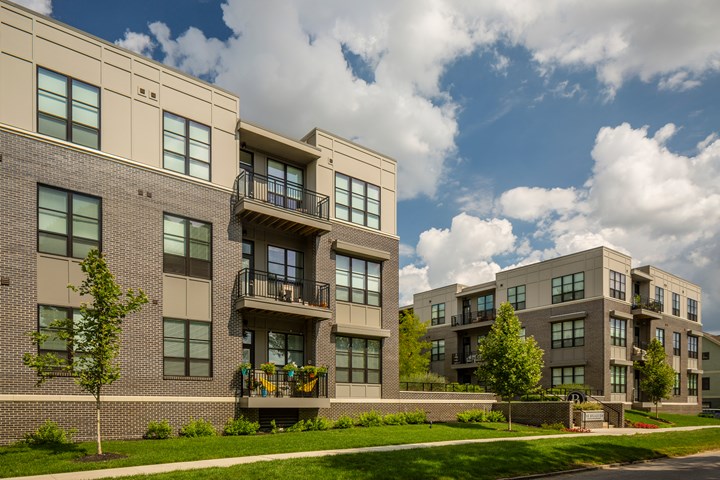Deceuninck introduces improved custom architectural solutions line, Innergy AP
The line of custom fiber-reinforced polymer commercial components offered under Innergy AP deliver both structural strength and thermal performance.

Building/window system with Innergy reinforcements. Photo Credit: Deceuninck North America
In 2012, Deceuninck North America (Monroe, Ohio, U.S.) launched a new window reinforcement system, Innergy, incorporating pultruded glass-fiber- reinforced polyurethane window stiffeners for insertion into customer’s hollow, extruded vinyl window sashes and frame profiles (see “Ushering in a new era for windows … and more”). On Sept. 9, 2020, the company relaunched the system at the GlassCon Global VE-Glass Expo under Innergy Architectural Products (AP) with a new line of custom architectural solutions, including pressure plates, structural thermal struts, reinforcements and curtain wall components. The offering builds from Deceuninck's Innergy Rigid Thermal Reinforcements already used in window and door frame chambers for enhanced energy efficiency.
According to Deceuninck, Innergy AP products deliver both structural strength and thermal performance to today’s infrastructure compared to traditional materials such as aluminum or polyamide; for example, the fiber-reinforced polymer components are said to deliver up to 900 times more energy efficiency than aluminum.
Moreover, it is said to improve the thermal performance of commercial windows, doors, curtain wall and storefront systems without the need for a complete redesign. All products in this line are said to be custom-designed to fit existing commercial fenestration products.
"This new offering is a natural extension of our Innergy reinforcements and demonstrates our team’s focus on innovation, reliability and sustainability. We are delivering custom solutions to meet the heightened performance demands for today's modern buildings," says Gregory Koch, vice president of sales and marketing for Deceuninck North America. "With Innergy AP, you don't have to compromise on strength or thermal performance."
Related Content
-
Carbon Mobile, SABIC to develop, deploy advanced carbon fiber in connected devices
Collaboration aims to deliver the next generation of thinner, lighter, stronger and more sustainable composite materials used in consumer electronics and automotive industries.
-
ExoTechnologies completes testing on recyclable motorcycle helmet
Helmet fabricated from Danu composites demonstrates improved weight reduction, impact resistance and complete recyclability compared to carbon fiber alternatives.
-
Repurposing wind blades as functional community art pieces
Ohio-based Canvus Inc. upcycles fiberglass wind blades, car tires and post-consumer plastics to create outdoor furniture that amplifies sustainability messages in community spaces.













